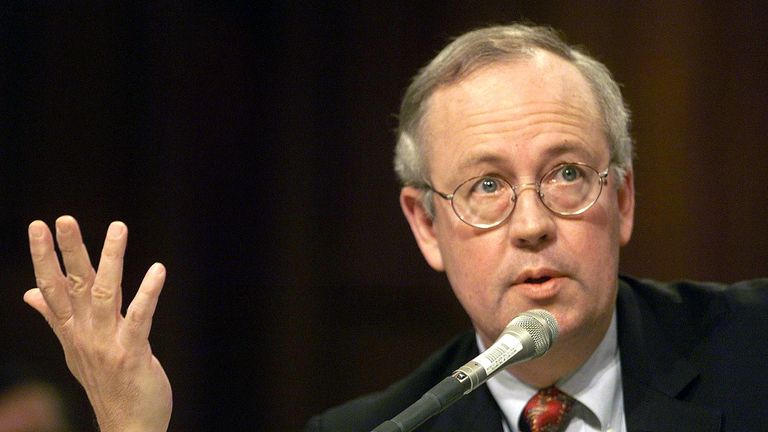By Cordelia Lynch, US correspondent
Unlike so many things in Washington, Robert Mueller's investigation has generated very few leaks.
The special counsel's team has quietly and protectively been beavering away in an unremarkable office in southeast Washington while the rest of us are left to speculate on what they may or may not be thinking.
For nearly two years, the probe has dominated discourse in the Capitol, the president consistently branding it a "witch hunt", his opponents somewhat gleefully whispering about the potential for a smoking gun and a possible path towards impeachment.
No one likes an anti-climax, but if you're expecting some dramatic finale, I'm not sure Mr Mueller is your man.
The reality is the public may never learn the full scope of what Mr Mueller and his team have found.
The special counsel operates under rules that heavily constrain how much information can be made public. Those restrictions mean his report to the attorney general must be "confidential".
What you won't get is some explosive or indeed anodyne coffee table book to pour over.
More from US
When independent counsel Kenneth Starr released his investigation of President Bill Clinton in 1998, politicians and journalists had a juicy 453-page document to leaf through – complete with dramatic details of the president's sexual escapades with Monica Lewinsky, who was then an intern.
The Mueller report will be wildly different. He, unlike Mr Starr, will be under the purview of the Department of Justice with a string of regulations to follow. Mr Mueller could technically lay out an epic thesis with painstaking minutiae.
His report has gone to Attorney General William Barr and it is secret. He is required to send a report to Congress, but the rules state that these kind of reports "will be brief notifications, with an outline of actions and the reasons for them". So, more bullet points than a stab at Tolstoy.
There is room for surprise though. If the report contains allegations of potentially impeachable offences against the president, some legal experts have suggested that the Justice Department would have to pass the full details of that to Congress.
.@RudyGiuliani tells me the @AP report is incorrect. “Im not demanding they release the report before its transmitted. Its up to DOJ and Im confident it will be handled properly.” #MuellerReport
— Cordelia Lynch (@CordeliaSkyNews) March 22, 2019
That at this stage seems unlikely and if that is the case, Congress may have little access to the evidence Mr Mueller has gathered.
Democrats who run the House have made clear they will do all they can to make the findings public and they may well try to use the power of subpoena if there is evidence that Mr Trump conspired with Russia to help himself get elected.


Sky News
[contfnewc] [contfnewc]






